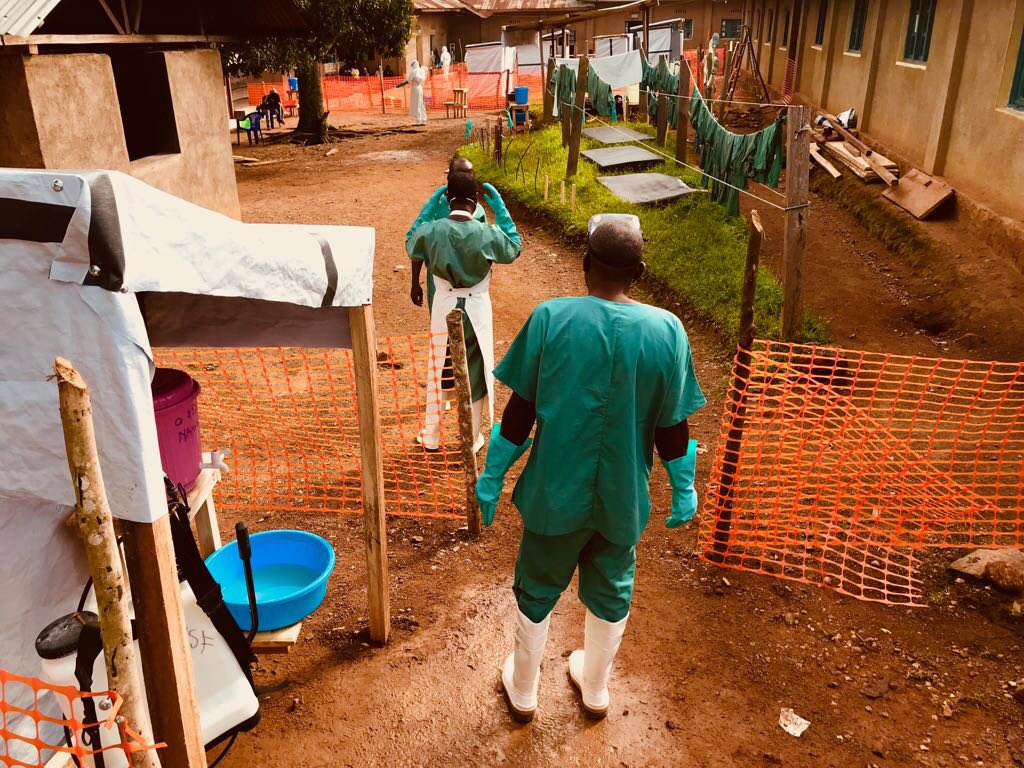Health officials in the Democratic Republic of Congo are celebrating the success chalked so far using an experimental treatment for the deadly Ebola virus.
Officials say two patients who received the treatment have recovered as efforts intensify to contain the spread of the virus.
These patients are now under monitoring to help understand the role the treatment played in their recovering.
More Ebola experimental treatments were approved by the Congolese government this week to fight the outbreak.
The country’s health ministry says the new treatments have become necessary as the outbreak in the country appears to be getting out of control.
On Saturday the World Health Organization congratulated Congo’s government for providing several experimental treatments available to patients.
Congratulations to these survivors, and also to @MinSanteRDC for making investigational #Ebola treatments available at scale during an outbreak. A global first, and a ray of hope for people with the disease. We are your proud partners. https://t.co/n3kwQYLuqm
— Tedros Adhanom Ghebreyesus (@DrTedros) August 25, 2018
Last week health officials started administering the U.S.-developed mAb114 treatment to Ebola patients. That was the first time such a treatment had been used against an active outbreak.
The two patients who recovered from the virus received the mAb114 treatment isolated from a survivor of an Ebola outbreak in 1995.
Difficult containing outbreak
On Friday the WHO announced that a doctor has contracted the deadly virus in eastern Congo.
The doctor living in North Kivu has now been hospitalised with Ebola symptoms. His wife contracted the disease when she traveled to the nearby city of Beni.
It is a situation the WHO says it had dreaded since the latest outbreak which has so far killed 63 people.
The World Health Organisation (WHO) has already said that the ongoing militia violence is threatening the fight against the outbreak.
It says militia violence has prevented aid workers from reaching people who may have been infected by the virus.
The virus which is transmitted by bats was first discovered in DRC in 1976 and named after the Ebola river. Ebola leads to internal and external bleeding which can cause damage done to blood vessels.
Source: Africafeeds.com



